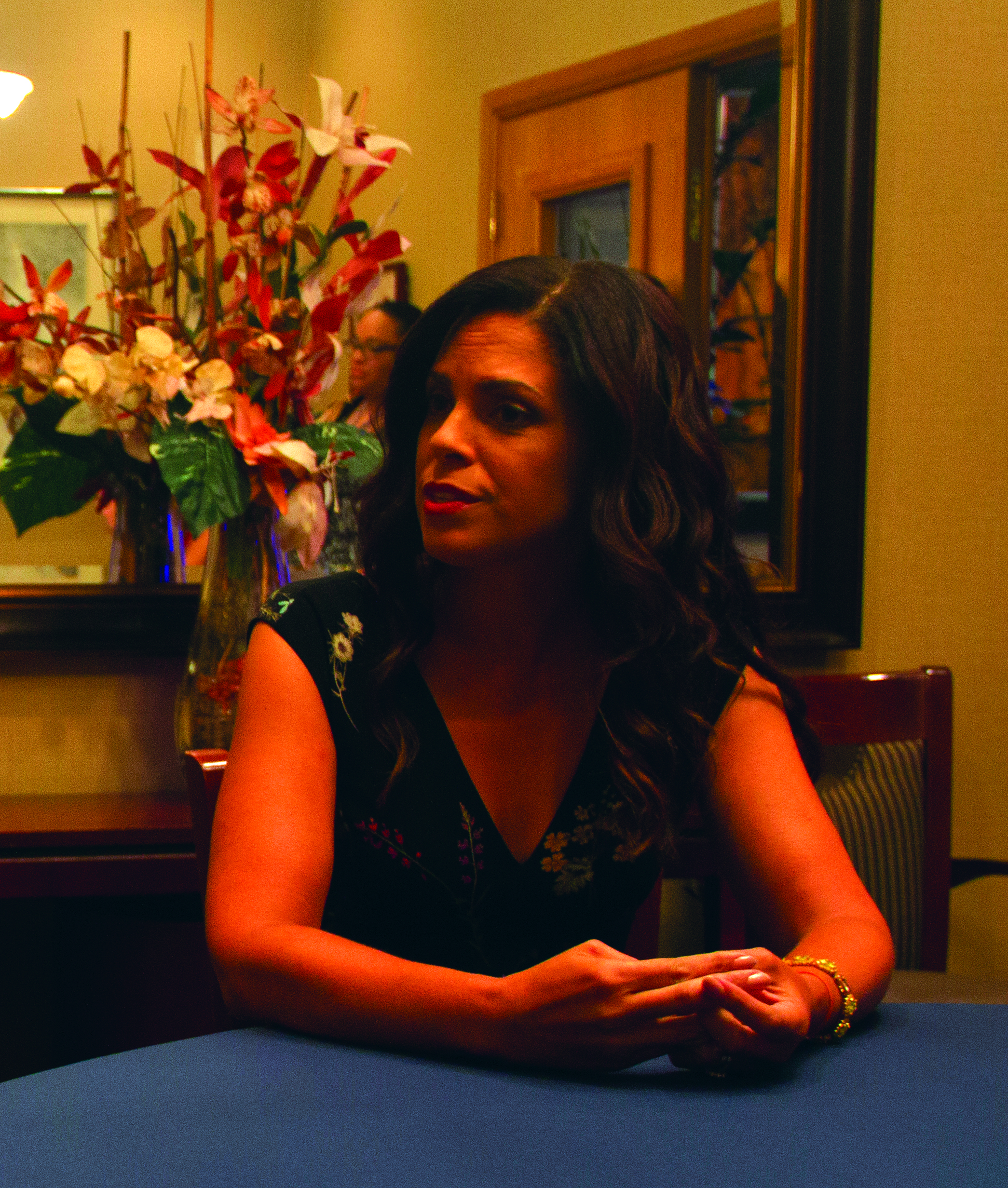Image and Video by Maria Soledad Lorenzino
Written by: Camila Fernandez/BBC Managing Editor
Award-winning television anchor and correspondent Soledad O’Brien said she experienced discrimination growing up. Now, she brings questions about prejudice and police brutality into light through her national Black in America tour.
Making her last stop at the University’s Biscayne Bay Campus, the BBC Student Government Council invited O’Brien last Wednesday, Feb. 25 as part of its Lecture Series, to talk about these issues, especially for student black minority groups.
Students and community members applauded O’Brien’s effort to discuss personal stories of how policing impacts the lives of all races and politics. She presented detailed analysis of racial profiling and brought evidence through different videos from her documentary, Black & Blue. A panel of experts and academics, including SJMC assistant professor Robert ‘Ted’ Gutsche, formed part of the conversation.
“I grew up in Long Island, [New York] on the north shore which was 99 percent white community,” said O’Brien in an interview with Student Media. “My full name is María de la Soledad Teresa O’Brien, which is not exactly blending in.”
O’Brien comes from a mixed family descent of Afro-Cubans and Irish Australians. She said she always felt isolated from others and was often made to feel like she didn’t fit in.
“When you make people feel like they don’t belong, you make them feel like ‘other.’ It’s very much a way of having mastery over them,” O’Brien said. “The minute you start saying that there’s ‘us’ and there’s ‘them,’ then it’s easier to say that they’re bad.”
According to O’Brien, 2014 was a year of strong confrontations about race in America, such as police brutality in the killing of Eric Garner in NY, as well as the shooting of Michael Brown in Ferguson, Missouri. Thus the Black in America tour – a way for college communities to talk about this issue.
“I’m not sure we’ve ever had a really honest conversation about race in this country,” O’Brien said. “It’s a very uncomfortable thing to want to do, and I think it is required before you can really hope to move forward on any kind of racial issue.”
O’Brien compared the United States to a metaphorically large boat. She said that if part of the boat has sprung a leak like unjust policing, economic disempowerment and overincarceration, everyone will be affected at some point by the leak.
“I think young people just want to be heard. I think they have questions and they want to be able to bring those questions to a larger audience,” O’Brien said. “Often conversations sort of put people into categories of oppressed and oppressor, and nobody wants to be part of that conversation. I don’t want to join that conversation.”
O’Brien has also shed light on gays, Latinos and Muslims in America. She said many Americans look at all Latinos in the same way, without thinking about their different histories in the country. Through documentaries, she hopes to reveal their individual stories.
“If you’re a journalist, you want to bring stories that others really haven’t told and a great way to do that is to go into populations and say, ‘I know you think this, but did you actually know this,’” O’Brien said. “When everyone is running for a story, I’m going the other way. I like going the opposite direction and look for the individual and finding their personal story and seeing if I can bring that out.”
O’Brien believes that the history of different populations are generally ignored in schools and that everyone should educate themselves around issues of race and the story of different communities.
“I think what [Black in America] did was, we realized that by giving a voice to a group, in this case African Americans, [they] kind of tell their own stories about their community. It’s actually pretty empowering,” O’Brien said.
camila.fernandez@fiusm.com






Be the first to comment on "Award-winning journalist sheds light at BBC"